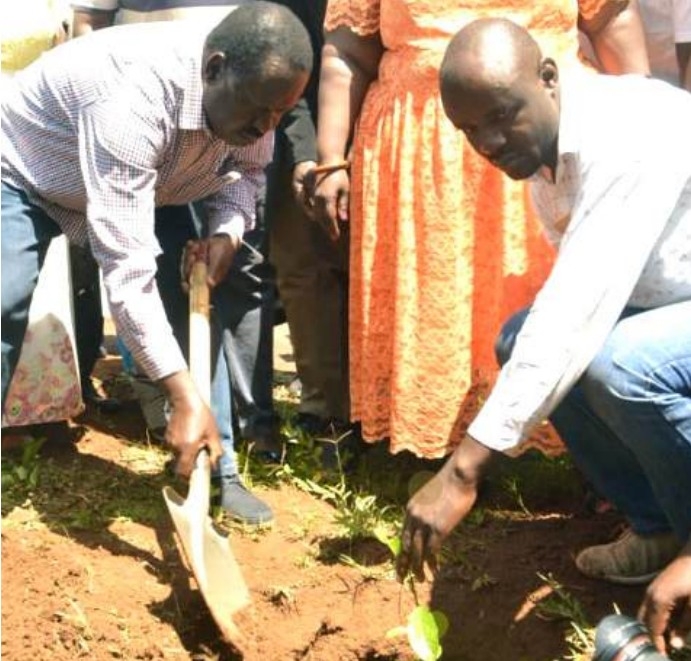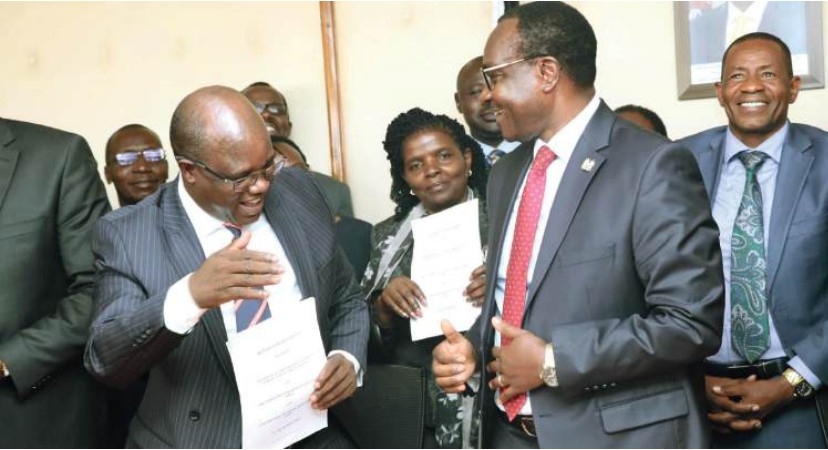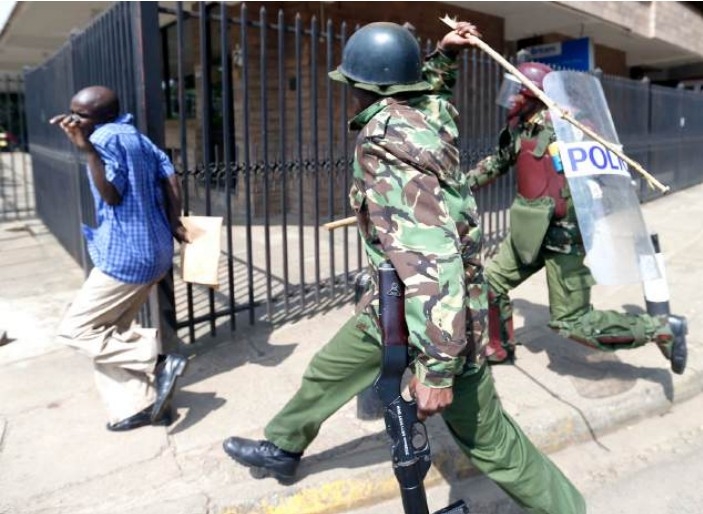The government will change some of the laws to allow security agencies to use DNA to trace and profile hardcore criminals.
DNA profiling is a forensic technique in criminal investigations.
Interior CS Fred Matiang'i yesterday said the country will be policed using modern methods.
"...we will discuss whether or not we will be allowed at least to keep the DNA data of offenders so that it is easier for Mr Kinoti (George) and his colleagues to trace and profile especially hardcore criminals," Matiang'i said.
The CS spoke at Kenya School of Government, Kabete, during a joint launch of the National Police Service Strategic Plan (2018-2022) and National Police Service Commission Strategic Plan (2019-2022).
He said the government is building a new public data architecture that is going to facilitate the police in service.
The CS said once the government has accurate data of individual citizens, they (citizens) will be served well.
"We have been spending a lot of time discussing the construction and harmonisation of background data that we need in the police service," he said.
He cited the National Integrated Identity Management System (NIIMS) as one of the ways through which data will be used to enhance service delivery.
The purpose of the initiative was to create and manage a central master population database to be the ‘single source of truth’ on a person’s identity.
The database contains information of all Kenyan citizens and resident foreigners and is a reference point for ease of service delivery.
Experts however say the system is prone to hacking.
Matiang'i said once the new generation number plates are issued, it will be easy for a police officer to deal with traffic-related issues and offences.
The government has been pushing for the smart plates, saying it will address runaway crimes such as tax evasion and carjacking.
The government no longer sends DNA samples abroad for profiling. Three modern machines for that purpose were unveiled in August. They are based at Government Chemist's laboratories in Nairobi, Kisumu and Mombasa.
The government hopes they will strengthen the criminal justice system, which has become heavily reliant on DNA to nail suspects.
Matiang'i said the government was aware of the need to strike the balance between law enforcement, respect for human rights and freedoms of citizens.
"This is a rule of law government and we will remain thus. We will enforce the law and we will also respect the rights and freedom of our people," he said.
The CS urged called for the allocation of more funds to the National Police Service and the Salaries and Remuneration Commission.
He was accompanied by among others Inspector General of Police Hillary Mutyambai, NPSC chair Eliud Kinuthia, Interior PS Karanja Kibicho, National Assembly's Departmental Committee on Administration and National Security Paul Koinange, SRC vice-chairperson Dalmas Otieno, IPOA chairperson Anne Makori and Kenya School of Government Director-General Ludeki Chweya.
















![[PHOTOS] How ODM@20 dinner went down](/_next/image?url=https%3A%2F%2Fcdn.radioafrica.digital%2Fimage%2F2025%2F11%2F99d04439-7d94-4ec5-8e18-899441a55b21.jpg&w=3840&q=100)
